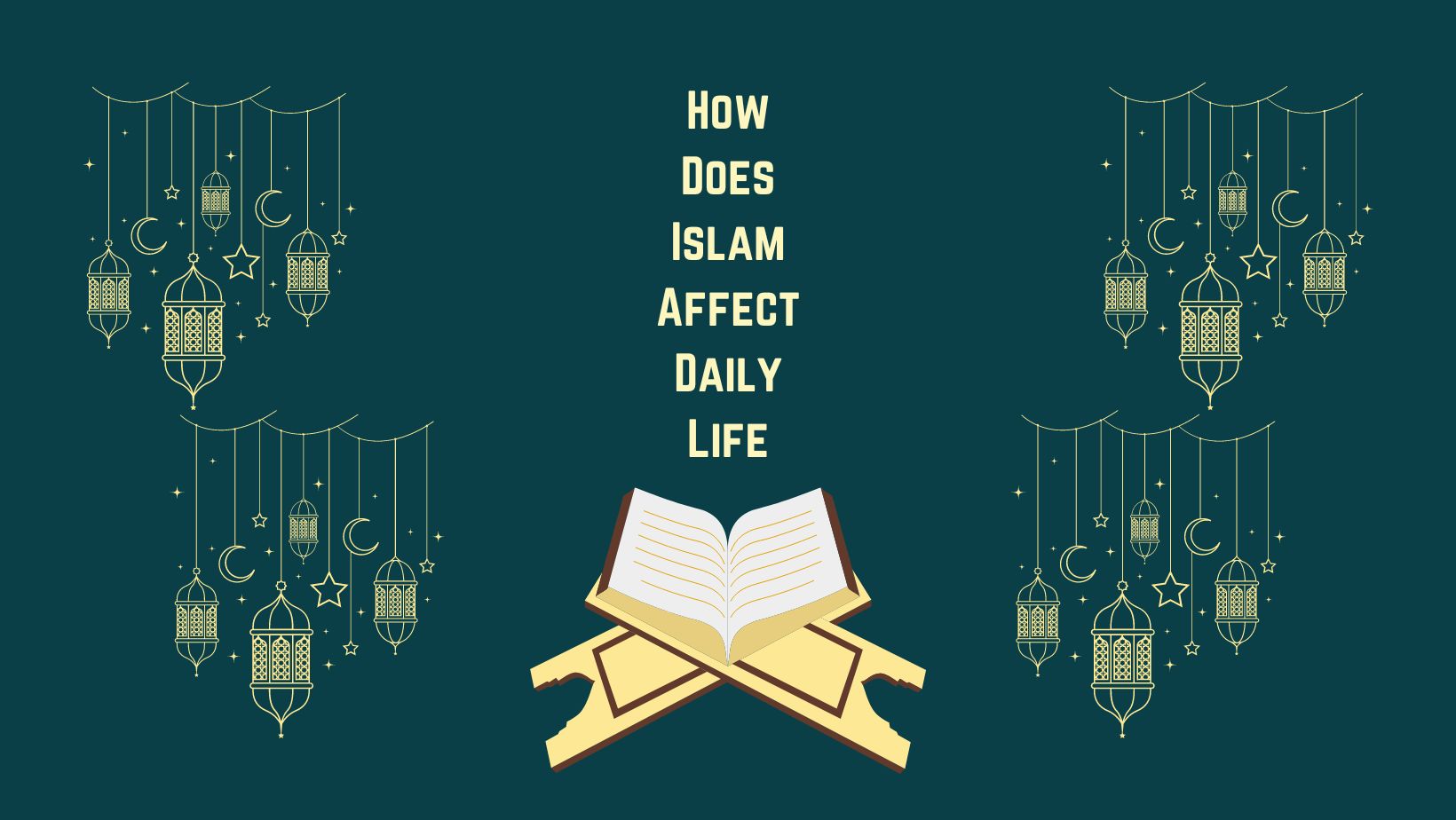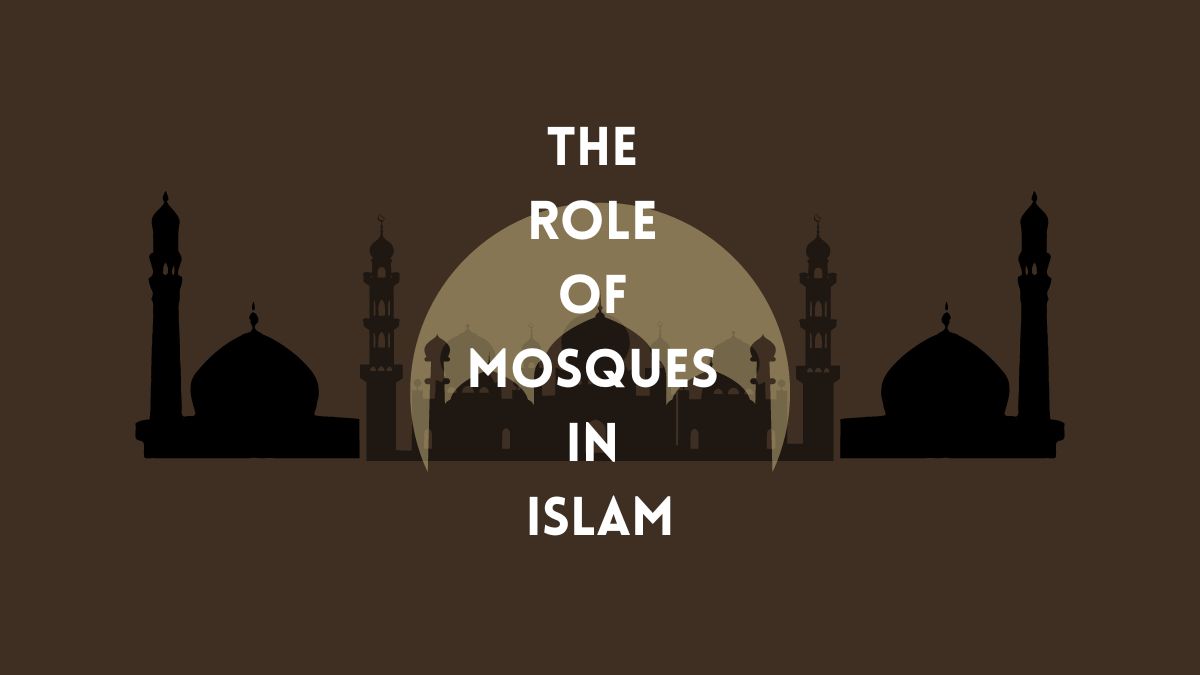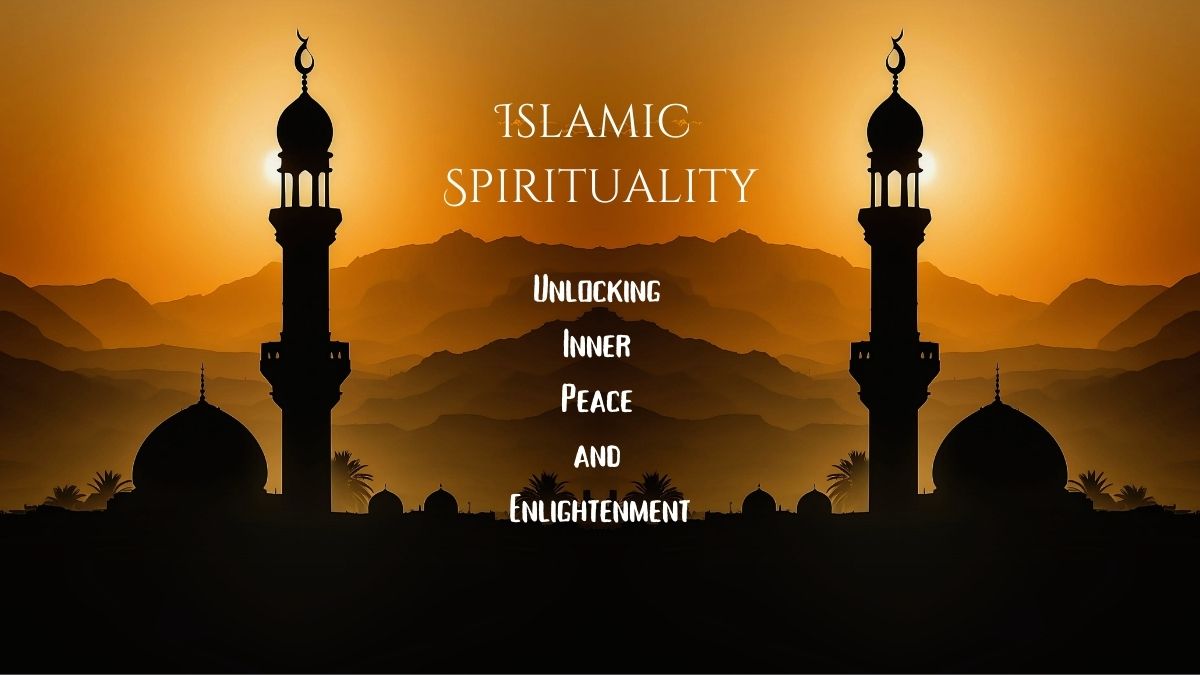Islam shapes daily life through prayer, fasting, charity, and following religious guidelines. It influences behavior, ethics, and interactions within Muslim communities. How does Islam affect daily life and how do we transform with the power of Islam? – this is our topic of discussion now.
Muslims prioritize rituals and values prescribed by Islam, impacting personal, social, and professional aspects of life. Islam’s significance extends beyond spiritual elements, impacting social norms, dietary choices, and financial dealings. From the early morning prayer to the restrictions on certain foods, Islamic teachings guide believers in navigating daily tasks and decisions.
The principles of Islam promote compassion, honesty, and accountability in all aspects of life, fostering a strong sense of community and harmony among followers. By adhering to Islamic teachings, individuals find purpose and guidance in their daily routines, ultimately shaping a well-rounded and fulfilling lifestyle.
Related Article: Peace in Islam: Understanding its Amazing Transformational Power
You may also read: Islamic Spirituality: Unlocking Inner Peace and Enlightenment

Related Article: Spiritual Benefits of Ramadan: Enhance Your Inner Peace
You may also read: What Makes Islam Unique: Insights & Distinctions
History Of Islam
Islam, one of the world’s major religions, has a rich history that plays a significant role in the daily lives of its followers. Understanding the history of Islam is crucial to grasp its influence on modern practices and beliefs.
Origins Of Islam
The origins of Islam can be traced back to the 7th century in the Arabian Peninsula. Prophet Muhammad received revelations from Allah, which eventually formed the Quran, the holy book of Islam.
Spread Of Islam
Islam spread rapidly after its inception, primarily through trade routes and conquests. The expansion of the Islamic empire facilitated the dissemination of Islamic teachings and customs.
“` Islam has a rich history starting in 7th century Arabia. Prophet Muhammad received revelations from Allah which led to the Quran. Islam spread through trade routes and conquests, expanding its influence.
Related Article: Qurbani in Islam: A Sacred Act of Devotion & Sacrifice

Credit: resala-academy.com
Related Article: Unlocking the Power of Ummah Significance
You may also read: Islamic Lifestyle Essentials: Nurturing Faith & Well-being
Islamic Beliefs And Practices
Islamic beliefs and practices significantly influence the daily lives of Muslims, governing various aspects of their behavior, thoughts, and actions. These beliefs and practices are deeply ingrained in the faith, shaping not only individual conduct but also communal activities and societal interactions. Understanding the fundamental principles and rituals of Islam provides valuable insight into how this rich religious tradition impacts the everyday lives of its followers.
Five Pillars Of Islam
The Five Pillars of Islam represent the core tenets and essential acts of worship that form the foundation of a Muslim’s faith and practice. These pillars include the declaration of faith (Shahada), prayer (Salat), fasting during Ramadan (Sawm), almsgiving (Zakat), and pilgrimage to Mecca (Hajj).
Islamic Holidays And Rituals
Islamic holidays and rituals play a vital role in the spiritual and cultural life of Muslims. These observances and practices not only provide opportunities for expressing devotion and seeking divine closeness but also serve as occasions for strengthening communal bonds and reinforcing shared values. Some of the notable Islamic holidays and rituals include Eid al-Fitr, Eid al-Adha, Jumu’ah (Friday prayer), and the practice of reciting the Quran.
You may also read: The Role of Imam in Islam: Guiding Faith and Community
Influence On Daily Life
Dietary Regulations
Islam has a significant impact on the daily lives of its followers, including regarding their dietary choices. Muslims adhere to strict dietary regulations outlined in the Quran, which promote cleanliness, health, and spiritual purity. One notable guideline is the prohibition of consuming pork and its by-products, as well as any meat that is not halal. Halal refers to food that is permissible under Islamic law, prepared according to specific guidelines, such as slaughtering animals by cutting the jugular vein and reciting a prayer. This emphasis on halal food has led to the growth of a thriving halal industry globally, as Muslims seek out halal-certified products in their day-to-day lives.
Dress Code And Modesty
Another prominent aspect of Islam’s influence on daily life is the emphasis on modesty and the prescribed dress code for both men and women. Islamic teachings promote modest attire that covers the body, with specific guidelines varying among different schools of thought and cultural practices. This dress code typically involves women covering their hair with a hijab or other headscarves and wearing loose-fitting clothing that conceals their figure. Men are also encouraged to dress modestly, though the guidelines are usually less strict. The intention behind these dress codes is to maintain humility, discourage objectification, and foster a respectful and modest society.
You may also read: The Role of Mosques in Islam: Spiritual Hubs and Community Centers
Role Of Family And Community
The role of family and community is significant in shaping individual lives and values in Islam. Islam places great emphasis on the importance of family structure and community support systems, recognizing their immense influence on daily life.
Importance Of Family Structure
A strong and cohesive family structure is essential for Muslims as it provides a stable foundation for personal development and strengthens societal bonds. In Islam, the family unit is considered the building block of society, with the husband and wife serving as partners who support and complement each other.
The family unit plays a crucial role in the upbringing and education of children, instilling in them Islamic values, morals, and principles. Parents are responsible for nurturing their children’s faith, teaching them about the Quran and the Prophetic traditions. They serve as role models, guiding their children in the practice of Islamic rituals such as prayer, fasting, and charity.
Within the family, respect, love, and compassion are highly emphasized. Family members are encouraged to fulfill their obligations towards one another and to maintain strong bonds of kinship. The Prophet Muhammad (peace be upon him) said, “He is not one of us who does not have mercy upon our young ones and does not honor our elderly.”
Community Support Systems
In Islam, community support systems are crucial in fostering unity, solidarity, and mutual assistance among Muslims. The Muslim community, known as the Ummah, is seen as an extended family where individuals come together to support and uplift one another.
| Community Support Systems in Islam |
| 1. Mosques: Mosques serve as the central hub for the Muslim community. They provide a place for congregational prayers, religious education, and community gatherings. |
| 2. Zakat: Zakat is a mandatory charitable contribution given by Muslims to support the less fortunate members of society. It helps ensure the equitable distribution of wealth and serves as a means of purifying one’s wealth. |
| 3. Sadaqah: Sadaqah refers to voluntary acts of charity, which Muslims are encouraged to perform to help those in need. It can take various forms, such as giving money, donating goods, or offering assistance to the elderly, sick, or vulnerable. |
| 4. Islamic Centers: Islamic centers act as hubs for religious and social activities, fostering a sense of community and offering resources such as Islamic classes, counseling, and support for new Muslims. |
The support systems within the Muslim community help individuals navigate various aspects of life, including spiritual growth, social welfare, and personal development. These systems reinforce the sense of belonging, unity, and collective responsibility among Muslims.
Related Article: Zakat: Transforming Lives Through Compassionate Giving
Modern Challenges And Adaptations
The modern world presents unique challenges for Muslims in practicing their faith while navigating through Western societies. These challenges have paved the way for reevaluating traditional practices and finding innovative adaptations to integrate Islamic values into daily life.
Islamophobia
Islamophobia is a prevalent issue that affects the daily lives of Muslims. Basically, it entails the irrational fear or prejudice against Islam and its followers, leading to discrimination and negative stereotypes. Muslims often face discrimination in various aspects of their lives, such as employment, education, and public spaces, due to misconceptions and prejudice about their religion. Overcoming Islamophobia requires promoting understanding, tolerance, and cooperation between different religious and cultural communities.
Integration In Western Societies
One of the significant modern challenges for Muslims is integrating their faith into Western societies. Muslims strive to maintain their religious identity while participating in diverse and secular environments. This integration involves adapting Islamic practices to align with Western customs and laws, promoting a harmonious balance between religious values and contemporary lifestyles. Basically, it also involves educating the broader population about Islamic beliefs and practices to create a more inclusive and accepting society.
Related Article: Islam And Modernity: Bridging Tradition and Progress

Credit: www.mdpi.com
Related Article: Tawheed: The Essence of Islamic Monotheism Explained

Credit: www.amazon.com
To know more about How Does Islam Affect Daily Life>>
Related Article: How to Be a Better Muslim: 5 Empowering Habits
Conclusion
In Islam, daily life is strongly influenced by faith, shaping behavior, relationships, and decision-making. The principles of prayer, charity, and moral conduct offer a framework for living with kindness and humility. By embracing Islamic teachings, individuals find strength, purpose, and a sense of connectedness to their community.
Embracing the values of Islam can guide and enrich daily life in powerful and meaningful ways. Indeed, we will be capable to understand how does Islam affects daily life properly when we stick to Islamic values.
Related Article: Ramadan is Coming: The Ultimate Blessings from the Almighty
You may also read: The Power of Islam: Unleashing its Transformational Potential





Islam has its own power to lead us to a spirituality in our daily life.
Thanks for being with us. Stay Connected.